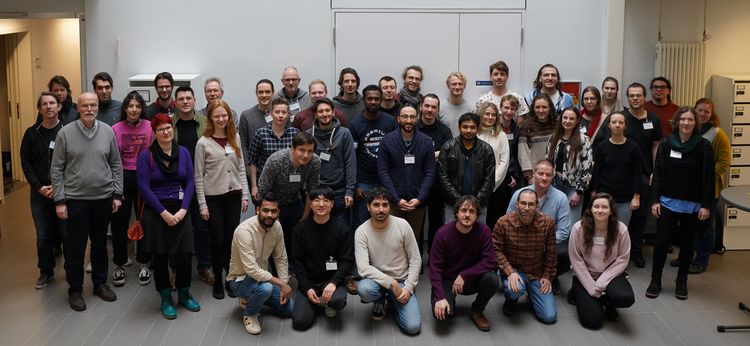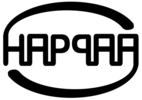Winter School "Hearing Acoustics" 2023
13.03.23 - 14.03.2023
University of Oldenburg, Germany

The Winter School on Hearing Acoustics: Models, Machine Learning, Applications, and Virtual Reality took place from 13.03.2023 – 14.03.2023 at the University of Oldenburg, Germany. It provided a great opportunity for Master and PhD students to broaden their understanding in several fields required in cutting-edge hearing research.
The Winter School gave also insights into the current research addressed in the collaborative research centre (CRC) Hearing acoustics (coordinator: Prof. Dr. Volker Hohmann) at the University of Oldenburg - School of Medicine and Health sciences – Dept. of Medical Physics and Acoustics dedicated to advance our understanding of auditory perception in complex acoustic environments (CAEs) and to improve acoustic communication in such difficult environments.
The PIs of the CRC, including renowned experts in the fields of
- audio signal processing & machine learning (Bernd Meyer, Jörg Lücke, Jörn Anemüller, Simon Doclo, Steven van de Par, Volker Hohmann),
- auditory modeling and psychoacoustics (Jan Rennies-Hochmuth, Kai Siedenburg, Stephan Ewert, Steven van de Par, Thomas Brand),
- hearing aids and audiology (Anna Warzybok, Birger Kollmeier, Kirsten Wagener, Volker Hohmann), and
- virtual acoustics (Bernhard Seeber, Mathias Blau, Michael Vorländer, Stephan Ewert),
have given tutorial talks closely related to their project within the CRC.
Accompanying the tutorial talks, hands-on exercises were offered to gain experience with modern tools (e.g., auditory models, immersive hearing device, binaural localization algorithms, room acoustics software) that have been developed or applied within the CRC for creating, assessing and analyzing communication situation in virtual CAEs with and without hearing supportive algorithms/devices.
The Winter School was also a great opportunity to meet with other students and to discuss the own research and ideas with leading experts. Since many aspects of hearing research were covered by this Winter School, Master and PhD students could try out different subjects, which may have given impulses for planning their next career steps.
Agenda 13.03.2023, Morning: Principles (Models)
| 08:00 – 08:25 | Arrival & registration | |
| 08:25 – 08:35 | Welcome | Volker Hohmann |
| 08:35 – 09:05 | Modelling hearing loss and the benefit from hearing devices using machine learning | Anna Warzybok, Birger Kollmeier |
| 09:05 – 09:35 | Multisensory speech processing | Pascale Sandmann |
| 09:35 – 10:05 | The Binaural Speech Intelligibility Model (BSIM) | Thomas Brand, Jan Rennies-Hochmuth |
| 10:05 – 10:35 | Deep neural networks for modeling human speech perception | Bernd Meyer |
| 10:35 – 10:50 | Coffee break | |
| 10:50 – 12:30 | Hands-on exercises | |
| An introduction to the Binaural Speech Intelligibility Model | Christopher Hauth, Jan Rennies-Hochmuth, Saskia Röttges, Thomas Brand | |
| Introduction to AFC, a psychophysical-measurement package for MATLAB | Thomas Biberger, Stefan Fichna | |
| 12:30 – 14:00 | Lunch break |
Agenda 13.03.2023, Afternoon: Algorithms
| 14:00 – 14:30 | The immersive hearing device: Closing the loop between hearing aid, environment and listener | Volker Hohmann |
| 14:30 – 15:00 | Deep neural networks for signal processing applications | Jörn Anemüller |
| 15:00 – 15:30 | Acoustic foundations of musical instrument identification | Kai Siedenburg |
| 15:30 – 16:00 | Coffee break | |
| 16:00 – 17:30 | Hands-on exercises | |
| The immersive hearing device at work in the interactive virtual reality lab | Giso Grimm | |
| Sound localization algorithms | Daniel Fejgin, Klaus Brümann | |
| 17:30 | End of the 1st day |
Agenda 14.03.2023, Morning: Applications
| 08:30 – 09:00 | Headphones – Measurement and calibration | Michael Vorländer |
| 09:00 – 09:30 | Ambisonics-based recording and reproduction using perceptually compensation of reproduction systems | Ali Fallah, Steven van de Par |
| 09:30 – 10:00 | Communication in virtual audio-visual scenes | Lubos Hladek, Bernhard Seeber |
| 10:00 – 10:30 | Room acoustic modelling | Stephan Ewert |
| 10:30 – 10:45 | Coffee break | |
| 10:45 – 12:30 | Hands-on exercises | |
| Room acoustic auralization with rtSOFE | Lubos Hladek | |
| Introduction to the Room Acoustic Simulator (RAZR) | Stephan Ewert | |
| 12:30 – 13:30 | Lunch break | |
| 13:30 – 13:35 | Farewell / End of Winter School |
About the CRC "Hearing Acoustics"
The common goal of the different research projects in the CRC is to quantitatively characterize the benefit of hearing devices in real-life environments considering complex auditory scenes and audio-visual as well as user-device interactions. Another key element is the transfer of the obtained insights into applications and future hearing devices. The CRC and the Department of Medical Physics and Acoustics provide an attractive research environment within international teams and most advanced research facilities.
Fees, Stipends & Credit Points
The Winter School was free from registration fees.
The CRC offered 10 stipends for international Master and PhD students and national Master students.
International master and doctoral students and national master students in the fields of acoustics, physics, bio-medical or electrical engineering, hearing research, technical audiology or related disciplines could apply for a stipend until 13.02.2023.
Participating PhD students could receive 1 ECTS credit point. A certificate of attendance was provided.

